
From July 3 to 14, 2023, Fudan-LSE Centre for Global Public Policy and the Institute for Global Public Policy held the first International Summer School on Global Public Policy. The summer school explored the core issues of global public policy, especially China’s increasingly important role in globalization. Instructors from the London School of Economics and Political Science (LSE) delivered two courses: “International Development and China” and “Chinese Media, Global Contexts: Convergence and Conflicts”. The summer school attracted students from top universities, such as Fudan University, Tongji University, Beijing Foreign Studies University, King’s College London, Hong Kong University of Science and Technology, University of International Business and Economics, etc. In the two-week English learning and exchange, the students deepened their understanding of contemporary Chinese public policy from multiple perspectives.
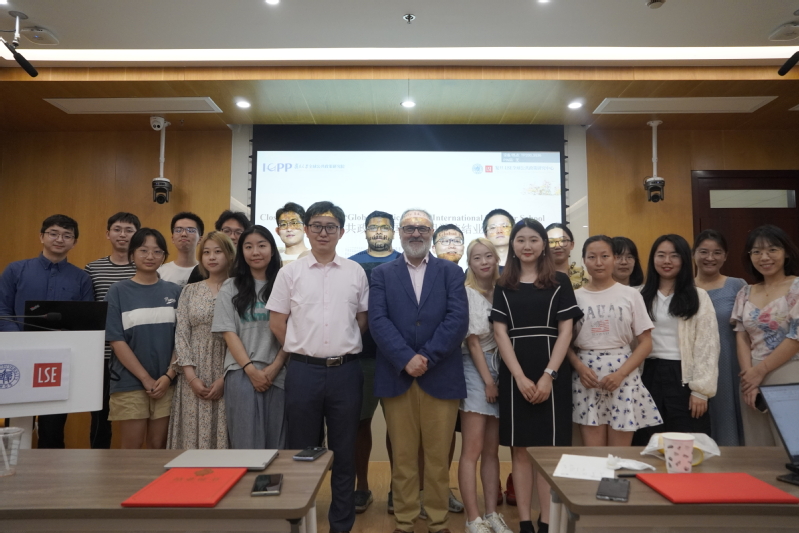
On July 3, the summer school held an opening ceremony. Professor Jing Yijia, the Dean of the Institute for Global Public Policy and Director of the Fudan-LSE Centre, gave a warm welcome to the students.
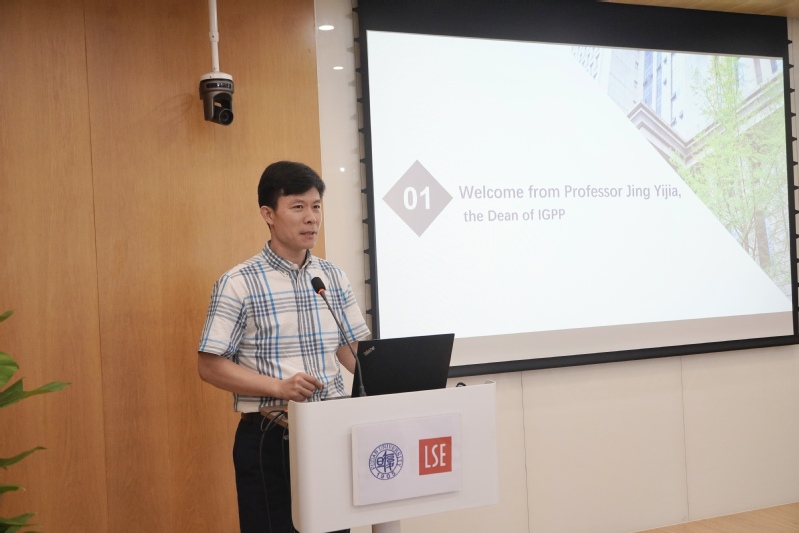

The course “International Development and China” was taught by Professor Alvaro Mendez and Professor Chris Alden from the Department of International Relations at LSE, and Dr. Li Yunxiong, Assistant Professor of the Institute, served as the teaching assistant. The course focused on China’s Belt and Road Initiative and its global impact, especially on developing countries and regions. Through empirical research and case studies, the course explored how China, as an important trade partner and investor in the Global South, exerted its influence in international development and governance.
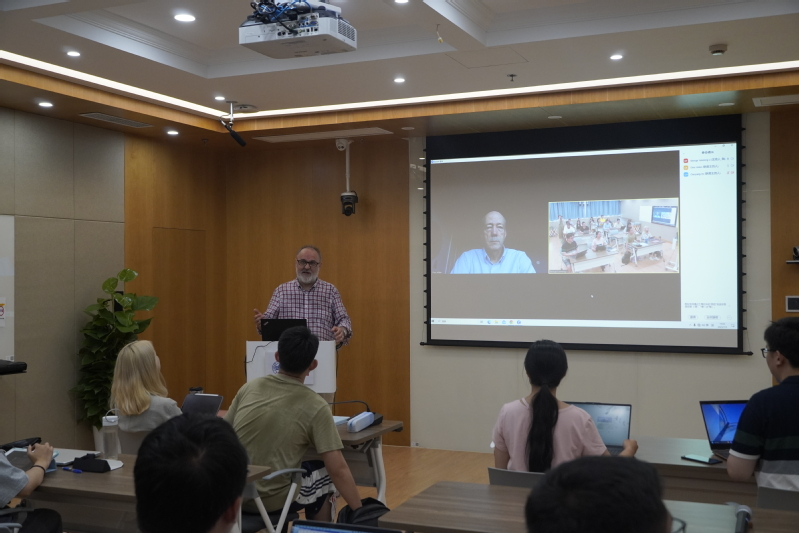
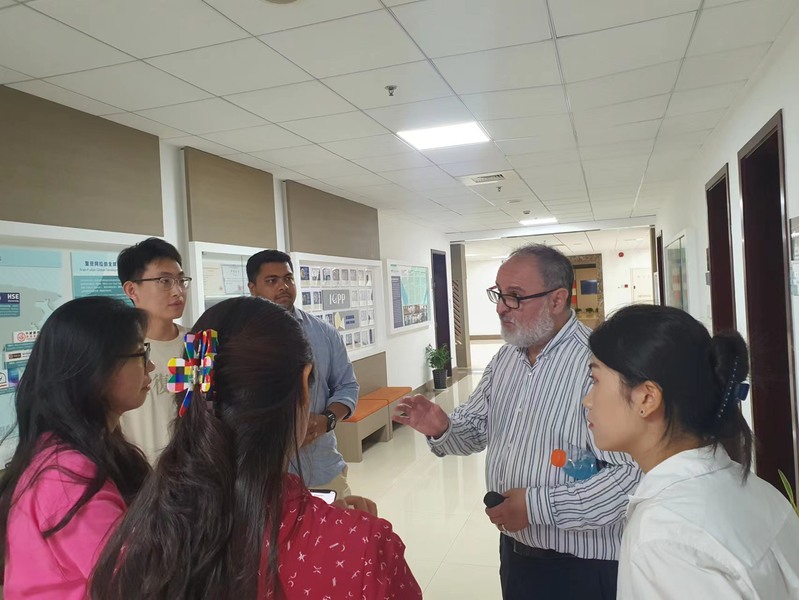
The course “Chinese Media, Global Contexts: Convergence and Conflicts” was taught by Professor Bingchun Meng from the Department of Media and Communications at LSE, and Wang Ting, a PhD candidate in journalism and communication at Fudan University, served as the teaching assistant. The course critically analyzed the key aspects of the transformation of Chinese media and communication in the past few decades. Professor Bingchun Meng led the students to deeply interpret the complex operating mechanisms of the media and communication industry under the interaction of politics, business, and culture.
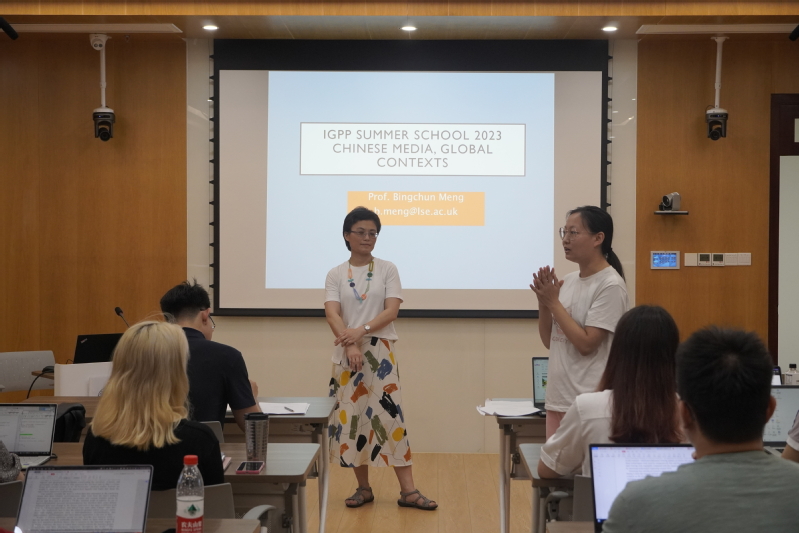
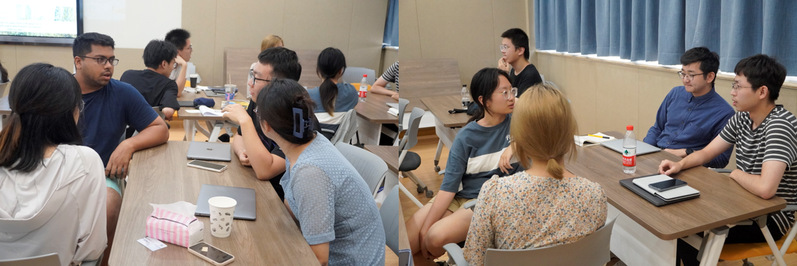
The students actively spoke and discussed on related topics. In addition to the intensive course learning, the students also explored the night view and local food together.

The graduation ceremony was hosted by the project director, Dr. Li Yunxiong. He congratulated the students who successfully completed the summer school courses, thanked the instructors, and encouraged the students to continue to pay attention to the relevant issues and research on global public policy, and awarded the course completion certificates.
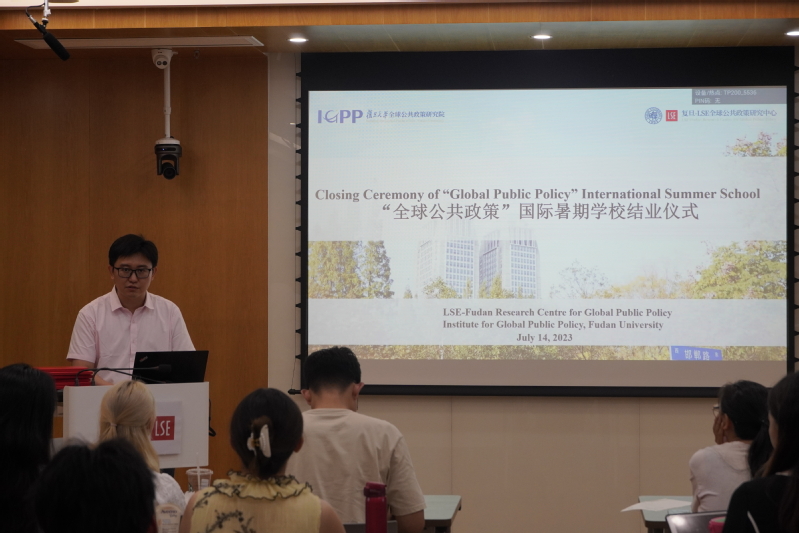
Comments from students:
Zhuoran Lin (Tongji University)
I chose the course “International Development and China” because I wanted to know and deepen my understanding of what responsibility China is taking around the world. I learned how important curiosity could be. Behind the familiar facts and simple questions, there could be complicated answers. Take one example, is Brazil a BRI country? When you search on the Internet, the answer is no, and things get really interesting. I think that’s one of the most intriguing attractions of studying here. Those wise answers contribute to our understandings of a complicated world.
Yu He (Fudan University)
From the courses, I learned about how social media developed in China and connected to the world. And we also learned so many hot topics in our daily life -- how they connect to the future and culture of our social media development. It’s my honour to take part in this course and learn so much wonderful knowledge.
Akhil Reuben Kanagaraj (Miami University)
I come from India, which has been greatly influenced by China in the process of globalization. Many Chinese enterprises invest in India and build infrastructure, while the international multilateral organizations led by China, such as the Shanghai Cooperation Organization and AIIB, have gradually increased their influence. Indian young people need to better understand China and learn from its development experience. This summer school provides such a good opportunity, and also helps me to learn Chinese language.
Instructor’s comments:
Yunxiong Li(Fudan University)
This summer, the Institute for Global Public Policy of Fudan University organized our first International Summer School on Global Public Policy. For two weeks, our students immersed themselves in reading, lectures, and discussions on media and international development theories and frontier research. They also refined their learning goals and research interests. As the program director, I am proud of their achievements.




